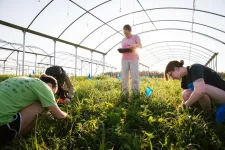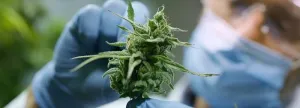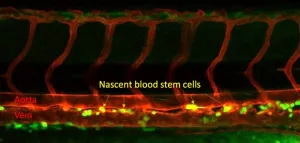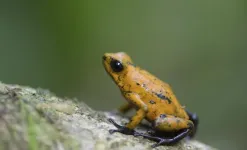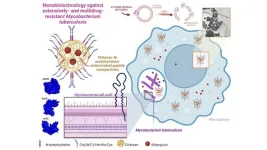(Press-News.org) LAWRENCE — A study appearing in Nature Communications based on field and greenhouse experiments at the University of Kansas shows how a boost in agricultural yield comes from planting diverse crops rather than just one plant species: Soil pathogens harmful to plants have a harder time thriving.
“It’s commonly observed that diverse plant communities can be more productive and stable over time,” said corresponding author James Bever, senior scientist with the Kansas Biological Survey & Center for Ecological Research and Foundation Distinguished Professor of Ecology & Evolutionary Biology at KU. “Range lands with numerous species can show increased productivity. But the reason for this has been a bit of a mystery.”
While crop rotation and other farming and gardening practices long have reflected benefits of a mix of plants, the new research puts hard data to one important mechanism underpinning the observation: the numbers of microorganisms in the soil that eat plants.
“Diverse agricultural communities have the potential to keep pathogens at bay, resulting in greater yields,” Bever said. “What we show is that a major driver is the specialization of pathogens, particularly those specific to different plant species. These pathogens suppress yields in low-diversity communities. A significant advantage of rangeland diversity is that less biomass is consumed by pathogens, allowing more biomass for other uses, such as cattle. The same process is crucial for agricultural production.”
The new data was developed at the University of Kansas using field experiments at the KU Field Station, along with greenhouse assays and feedback modeling using computers. This project was supported by large collaborative grants to KU from the National Science Foundation and the U.S. Department of Agriculture.
“We conducted an experiment manipulating the number of plants in a plot and varying precipitation levels — we had from one up to six species in a plot,” Bever said. “Then, we evaluated the composition of the soil-pathogen microbiome. What we found is that the variation in pathogen composition in monocultures significantly predicted the yield when combined. When there are distinct pathogen communities, mixing them leads to a greater release of pathogens from your neighbors. The worst scenario is when a neighboring crop has the same pathogens. In that case, you’re experiencing double density — your crop pathogens and those from your neighbor crop.”
At KU, Bever’s collaborators included associate specialist Peggy Schultz as well as Haley Burrill and Laura Podzikowski, both of whom earned doctorates at KU and now are postdoctoral researchers at the University of Oregon and KU, respectively. Lead author Guangzhou Wang worked at KU as a postdoctoral researcher and now is affiliated with China Agricultural University in Beijing, where he worked on the investigation there with co-authors Fusuo Zhang and Junling Zhang. They were joined by co-author Maarten Eppinga of the University of Zurich, Switzerland.
According to Bever, the research argues against the industrial-agricultural practice of planting a single food crop over many acres of land, often referred to as “monoculture.”
“Regarding monoculture practices, the philosophy of promoting plant diversity seems to counter prevailing practices,” he said. “Monoculture — planting vast areas with a single crop — is driven by technological reasons rather than biological ones. Practical aspects of planting and harvesting have motivated this approach. Traditional Native American agriculture and practices in the tropics involve polycultures with multiple species. In China, there’s a movement towards mechanized polyculture production, challenging the predominant monoculture model in the United States. It’s essential to view monoculture as a cost-benefit model with increased inputs and explore alternative methods like crop rotation to manage pathogens over time.”
Bever said mixing plants in various plots would be beneficial to home gardeners and others who cultivate plants.
“When you’re gardening, you’re not relying on mechanical planting and mechanical harvesting,” he said. “It’s definitely to your advantage to mix your crops — to plant them in heterogeneous mixes in the plot. For convenience, we might plant alternating rows of different crops. That’s going to do a better job of controlling pathogens than if you just had many rows of the same crop next to each other. If you had four plots in your backyard that were discrete, you wouldn’t want to put all tomatoes in one and all squash in another, and a third with herbs — you’d want to mix them in. You’ll reduce pathogens by doing that. It’s what our data shows.”
Finally, Bever said his team’s findings that show biodiversity prohibits pathogen growth isn’t as clear-cut outside the plant kingdom. In fact, the idea is contentious in animal systems like Lyme disease.
“Our clear result in the plant world contrasts with the complexity of this literature in the animal world,” he said. “In the context of recent attention on pathogens, such as with COVID, the study of pathogens in ecology has been controversial. The impact of diversity on pathogen impacts, whether it increases or decreases, has been debated. Our findings for plants indicate the bigger concern is the reduction of pathogen spread with increased diversity, rather than an increase. In our study, pathogens, including soil-dwelling ones, were examined. Similar patterns were observed with foliar pathogens, as detailed in an upcoming paper. The controversy arises from differences between how pathogens affect the animal kingdom versus plants.”
END
Research offers a reason why diversity in plant species causes higher farming yield, solving 'a bit of a mystery'
2023-12-20
ELSE PRESS RELEASES FROM THIS DATE:
UM School of Medicine review highlights rise in psychiatric disorders linked to increased cannabis use
2023-12-20
The widespread use of cannabis (marijuana) and its increased potency are associated with a rise in cannabis-related psychiatric conditions, according to a new University of Maryland School of Medicine (UMSOM) review article that was recently published in the New England Journal of Medicine. It highlights the urgent need for doctors to screen for and treat patients who are experiencing symptoms of cannabis use disorder, which means they are experiencing significant problems from their use of the drug.
Nearly one in five Americans ages 12 and older used cannabis in 2021, according to the article, and more than 16 million met the criteria for ...
Immune system plays crucial step in creating blood stem cells
2023-12-20
AMES, Iowa – A microbial sensor that helps identify and fight bacterial infections also plays a key role in the development of blood stem cells, valuable new insight in the effort to create patient-derived blood stem cells that could eliminate the need for bone marrow transplants.
The discovery by a research team led by Raquel Espin Palazon, an assistant professor of genetics, development and cell biology at Iowa State University, was published last month in Nature Communications. It builds on prior ...
New grant gives South Carolina life sciences companies a chance to accelerate
2023-12-19
The Medical University of South Carolina is one of nine leading research universities across six states partnering with Innosphere Ventures on its Regional Life Sciences Incubator. Innosphere Ventures is a Colorado-based life sciences incubator with proven methods for propelling startups to successful market entry. Funding from a $2 million three-year Build to Scale Venture Challenge grant from the U.S. Department of Commerce will create a regional incubator that will offer its partnering institutions and selected startups ...
Predicting prenatal care to improve pregnancy outcomes
2023-12-19
Socioeconomic factors, like education and location, can affect access to life-saving prenatal care services. Researchers at Boston Children’s Hospital are taking steps towards implementing strategies that improve access to prenatal care: estimating how many pregnant people attend the recommended number of visits and identifying pregnant people who are at high risk of failing to attend. This could help policymakers allocate resources to populations not getting enough prenatal care and could, in turn, improve health outcomes for mothers and babies.
Led by Grace Chan, M.D., Ph.D., Attending Physician in the Intermediate Care Program at Boston ...
JMIR Medical Education accepted for MEDLINE indexing
2023-12-19
JMIR Publications is pleased to announce that JMIR Medical Education has passed the Scientific Quality Review for MEDLINE and has been accepted for inclusion in MEDLINE, which is the U.S. National Library of Medicine's premier bibliographic database.
JMIR Medical Education was already indexed in PubMed. MEDLINE is a more selective subset of PubMed, consisting of the top 5,200 biomedical journals, and indexing in MEDLINE also means that articles are now also indexed with NLM Medical Subject Headings (MeSH terms) and other metadata.
Selection for MEDLINE is a result of a thorough review ...
Fish display distinct individual behaviours when swimming to find food
2023-12-19
Fish from the same species can evolve their sense of smell and display individual foraging ‘personalities’ to successfully find food in different habitats, according to new research.
In the study, published today as a Reviewed Preprint in eLife, researchers developed a high-throughput behavioural assay to test spontaneous swimming and differences in the sense of smell of individual Mexican cavefish larvae. eLife editors described the work as important, presenting compelling evidence that the surface and cave morphs of the fish show different olfactory preferences and odour sensitivities, and that individual fish show substantial variability in their spontaneous ...
Protein allows poison dart frogs to accumulate toxins safely
2023-12-19
Scientists have identified the protein that helps poison dart frogs safely accumulate their namesake toxins, according to a study published today in eLife.
The findings solve a long-standing scientific mystery and may suggest potential therapeutic strategies for treating humans poisoned with similar molecules.
Alkaloid compounds, such as caffeine, make coffee, tea and chocolate delicious and pleasant to consume, but can be harmful in large amounts. In humans, the liver can safely metabolise modest ...
Toxic chemicals found in oil spills and wildfire smoke detected in killer whales
2023-12-19
Toxic chemicals produced from oil emissions and wildfire smoke have been found in muscle and liver samples from Southern Resident killer whales and Bigg’s killer whales.
A study published today in Scientific Reports is the first to find polycyclic aromatic hydrocarbons (PAHs) in orcas off the coast of B.C., as well as in utero transfer of the chemicals from mother to fetus.
“Killer whales are iconic in the Pacific Northwest—important culturally, economically, ecologically and more. Because they are able to metabolically process PAHs, these are most likely recent exposures. Orcas are our canary in the coal ...
Schar school researchers to receive funding for nonprofit employment data project
2023-12-19
Schar School Researchers To Receive Funding For Nonprofit Employment Data Project
Alan Abramson, Professor, Government and Politics; Mirae Kim, Associate Professor, Nonprofit Studies; and Stefan Toepler, Professor, Nonprofit Studies, are set to receive funding for: "Nonprofit Employment Data Project."
The researchers will produce a comprehensive report on nonprofit employment in the United States, based on new data that is expected to be released by the U.S. Bureau of Labor Statistics (BLS) early in 2024. The researchers will also arrange for the transfer of the Nonprofit Works interactive database application, which is currently hosted by Johns ...
Nanoparticles with antibacterial action shorten duration of tuberculosis treatment
2023-12-19
A low-cost technology involving nanoparticles loaded with antibiotics and other antimicrobial compounds that can be used in multiple attacks on infections by the bacterium responsible for most cases of tuberculosis has been developed by researchers at São Paulo State University (UNESP) in Brazil and is reported in an article published in the journal Carbohydrate Polymers. Results of in vitro tests suggest it could be the basis for a treatment strategy to combat multidrug bacterial resistance.
According ...
